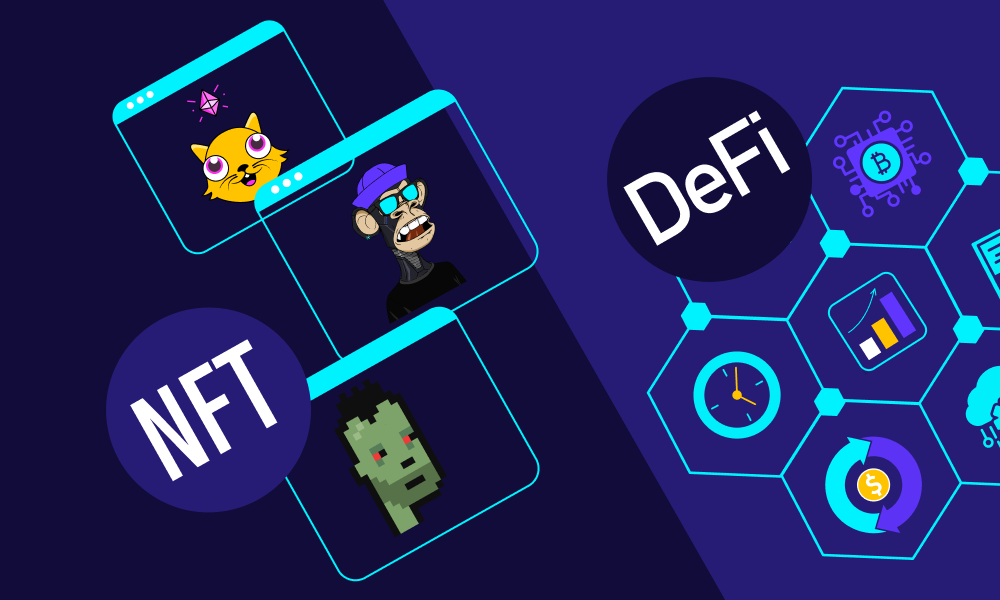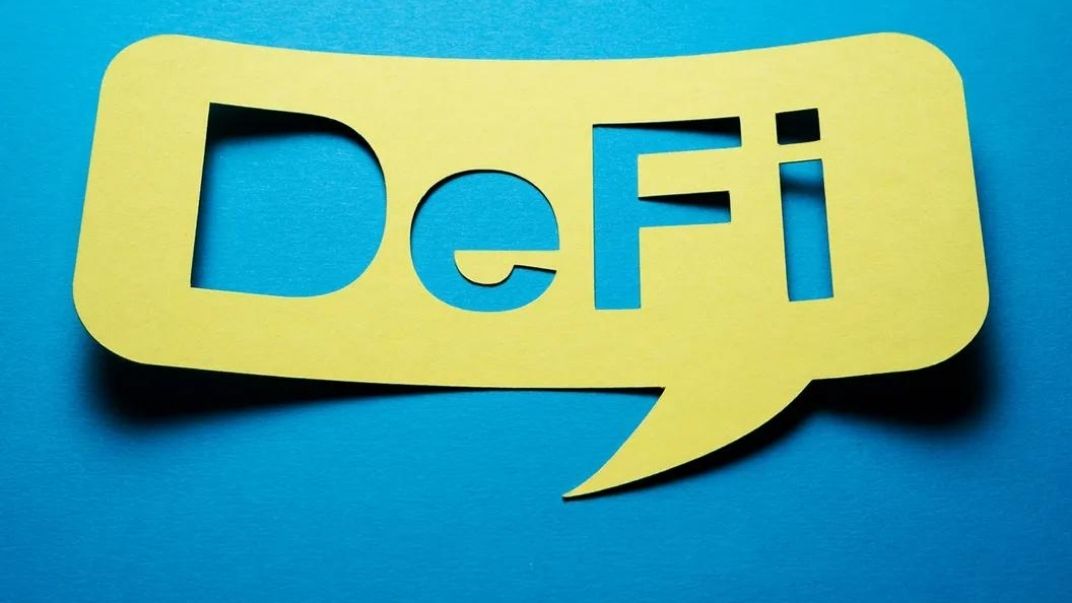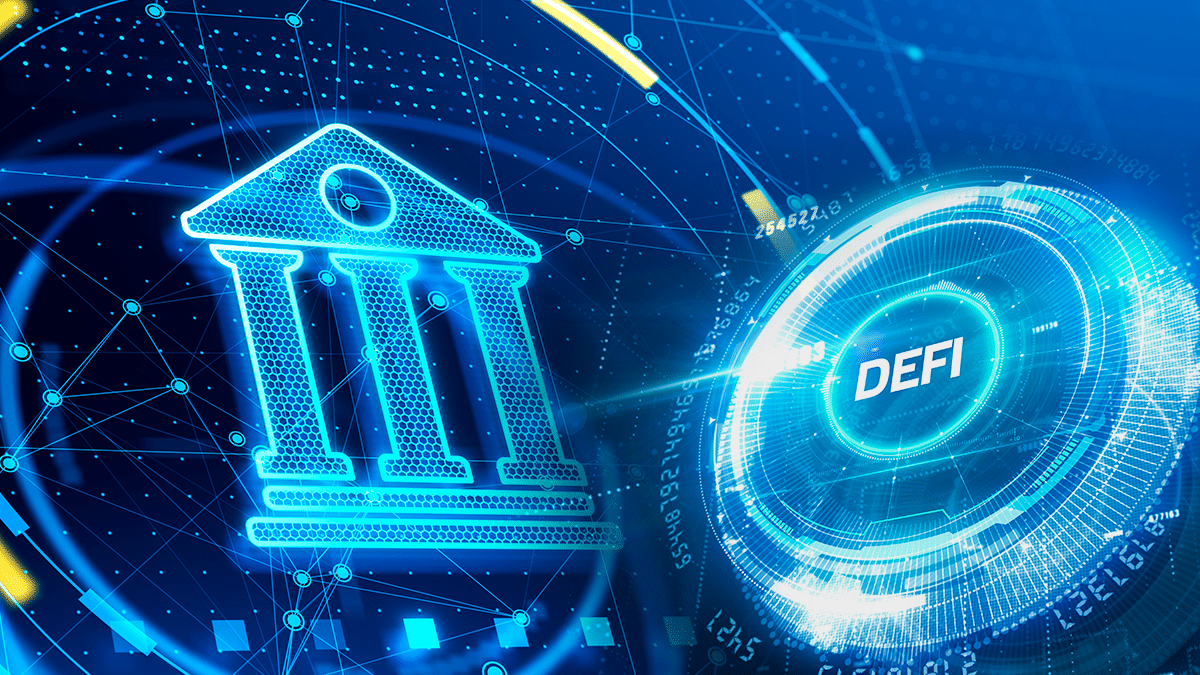Risks and Opportunities of Decentralized Finance (DeFi): The Emerging Revolution in the Crypto

What's DeFi?
Decentralized Finance, commonly referred to as DeFi, is a revolutionary financial ecosystem that leverages blockchain technology and smart contracts to recreate and innovate traditional financial services in a decentralized manner. In contrast to traditional financial systems that rely on centralized authorities such as banks, DeFi aims to provide open and permissionless access to financial services, allowing users to transact and engage in various financial activities without the need for intermediaries.
Key elements and features of DeFi include:
- Smart Contracts: DeFi platforms operate on smart contracts, self-executing contracts with the terms of the agreement directly written into code. These contracts automate and enforce the rules of financial transactions, eliminating the need for intermediaries.
- Decentralized Exchanges (DEXs): DeFi includes decentralized exchanges where users can trade cryptocurrencies directly from their wallets. These platforms operate without a central authority, providing users with greater control over their assets.
- Lending and Borrowing: DeFi allows users to lend their cryptocurrencies and earn interest or borrow assets using their crypto holdings as collateral. This is often facilitated through decentralized lending protocols.
- Stablecoins: Stablecoins, which are cryptocurrencies pegged to the value of traditional fiat currencies, play a crucial role in DeFi by providing a stable unit of account for transactions and mitigating the volatility associated with many cryptocurrencies.
- Tokenization of Assets: DeFi enables the tokenization of various assets, allowing traditional assets like real estate or commodities to be represented as digital tokens on the blockchain. This facilitates more accessible and efficient trading of these assets.
- Governance Tokens: Some DeFi projects issue governance tokens, allowing holders to participate in the decision-making processes of the protocol. Users can vote on proposed changes, upgrades, or other governance-related matters.
- Liquidity Pools: DeFi platforms often utilize liquidity pools, where users can contribute their assets to facilitate trading and liquidity in decentralized markets. In return, contributors earn a share of the trading fees.
While DeFi presents exciting opportunities for financial inclusion, efficiency, and innovation, it also comes with significant challenges and risks, such as smart contract vulnerabilities, regulatory uncertainties, and market volatility. As the DeFi ecosystem continues to evolve, it has the potential to reshape the traditional financial landscape.
DeFi Advantages:
- Increased Financial Inclusion: DeFi promotes financial inclusion by enhancing access to financial services globally. It encourages the participation of millions of individuals who face challenges accessing traditional banking systems.
- Low Transaction Costs: DeFi platforms eliminate the need for traditional financial intermediaries, resulting in lower transaction costs. Users can conduct various financial transactions at reduced fees compared to traditional systems.
- Easy Access and Swift Transactions: DeFi is a global and accessible platform, allowing users to engage in financial transactions at any time without the constraints of traditional banking hours. Transactions are swift and can be executed instantly.
- Investment Diversity: DeFi provides users with a range of investment options, including cryptocurrencies, liquidity pools, loans, and other financial instruments, fostering investment diversity.
DeFi Disadvantages:
- Security Issues: DeFi platforms are built on smart contract technology, which introduces security risks. Smart contract errors or vulnerabilities can lead to compromises in user assets and security breaches.
- Price Volatility: The high volatility of cryptocurrencies poses a risk to DeFi users, as sudden and significant fluctuations in asset values can result in substantial financial losses.
- Regulatory Uncertainty: DeFi remains largely unregulated in many countries. Potential future regulations by governments can create uncertainty for users and increase implementation risks.
- Liquidity Problems: DeFi platforms rely on liquidity pools, and issues with liquidity can prevent users from selling their assets when desired, impacting the ease of trading.
- User Error Risk: DeFi requires users to manage their assets independently. User errors, such as incorrect transactions or the loss of private keys, can lead to the loss of funds.
In summary, while DeFi offers various advantages in the financial system, it comes with significant risks. Users should approach DeFi platforms with an understanding of these risks and prioritize security measures in their involvement.
With the rapid evolution in the world of cryptocurrency, a new ecosystem known as Decentralized Finance (DeFi) has emerged. DeFi is a financial services network built on smart contract technology with the aim of sidelining traditional financial institutions. However, this new paradigm comes with a range of opportunities and risks.
Opportunities
- Increased Financial Inclusion: DeFi expands access to financial services, potentially increasing global financial inclusion. Millions of people worldwide without bank accounts could gain access to financial services through DeFi.
- Low Transaction Costs: The elimination of intermediary institutions in traditional financial systems significantly reduces transaction costs in DeFi. This provides users with the advantage of conducting financial transactions at lower fees.
- Easy Access and Swift Transactions: DeFi is accessible worldwide, allowing users to engage in instant transactions. Unlike traditional banking systems with hourly or daily transaction limits, DeFi protocols enable users to utilize financial services at any time.
- Investment Diversity: DeFi allows users to invest in various financial instruments such as cryptocurrencies, liquidity pools, and loans, providing a range of investment options.
Risks
- Security Vulnerabilities: Many DeFi protocols are built on smart contracts, which can be susceptible to errors and security vulnerabilities. This exposes them to malicious attacks and potential fund losses.
- Price Volatility: Cryptocurrencies often experience extreme price fluctuations. DeFi users may face substantial financial risks due to sudden declines or increases in the value of crypto assets.
- Regulatory Risk: DeFi is not yet fully regulated in many countries. If governments introduce regulations for this new ecosystem, it could create uncertainty and implementation risks for DeFi users.
- Liquidity Issues: DeFi platforms rely on liquidity pools. However, liquidity problems may arise, preventing users from selling their assets under certain conditions.

Decentralized Finance represents a groundbreaking transformation in the financial world. However, it is crucial to assess the risks as well as the opportunities that come with this revolution. Users should conduct careful risk analyses and prioritize security measures before actively participating in the DeFi ecosystem. Investors and regulators should collaborate to develop policies and regulations that will shape the future of DeFi.
Regards
CemS






































